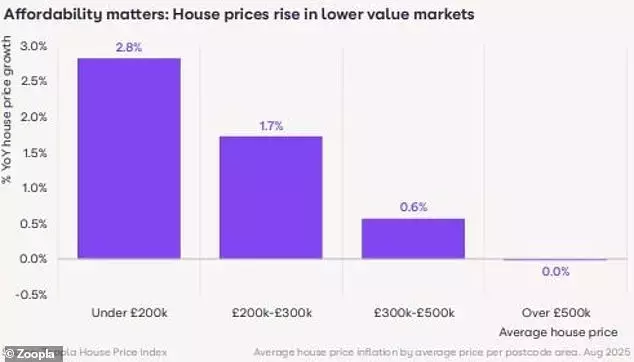
Anticipation of the Autumn Budget is casting a long shadow over the higher end of the UK property market, with new data revealing a significant slowdown.
Despite government rhetoric promoting economic growth, concerns over potential new property taxes have led to a notable reduction in activity. Zoopla's figures highlight a 4% decrease in buyer interest for properties priced at £500,000 or above compared to the previous year. The impact is even more pronounced for homes exceeding £1 million, where buyer demand has fallen by 11% in the last five weeks. This has caused a ripple effect, with Savills reporting a 1.8% decline in prime central London property prices over the past three months, marking the largest drop since December 2016, and an 8.1% annual decrease in the broader prime country house market. Industry experts emphasize that market uncertainty, fueled by discussions of 'mansion taxes' or a new property tax replacing stamp duty, is deterring both buyers and sellers.
This widespread hesitation extends to new property listings, with a 9% reduction in homes over £1 million and a 7% decrease in properties over £500,000 compared to the previous year. In contrast, the mainstream property market remains largely unaffected, maintaining demand and supply levels similar to last year. London and the South East, which have a higher concentration of properties above £500,000, are expected to feel the effects of this speculation most acutely. Currently, one-third of all listed homes exceed £500,000, and 8% are priced at £1 million or more. Property price inflation is generally slowing, reaching 1.4% last month, down from 1.9% in December 2024, with an average home costing £271,000. However, more affordable areas, particularly in Northern Ireland (7.9% increase) and the North West (3.1% increase), are experiencing stronger price growth. Falling mortgage rates, now between 4% and 5% for a five-year fixed deal, have increased borrowing capacity by 20% for the same income, benefiting first-time buyers and those in less expensive regions.
The current climate underscores the delicate balance within the housing market, where policy speculation can significantly influence consumer confidence and transaction volumes. A transparent and predictable fiscal environment is crucial for fostering stability and enabling both buyers and sellers to make informed decisions, ultimately contributing to a more robust and equitable property landscape.
